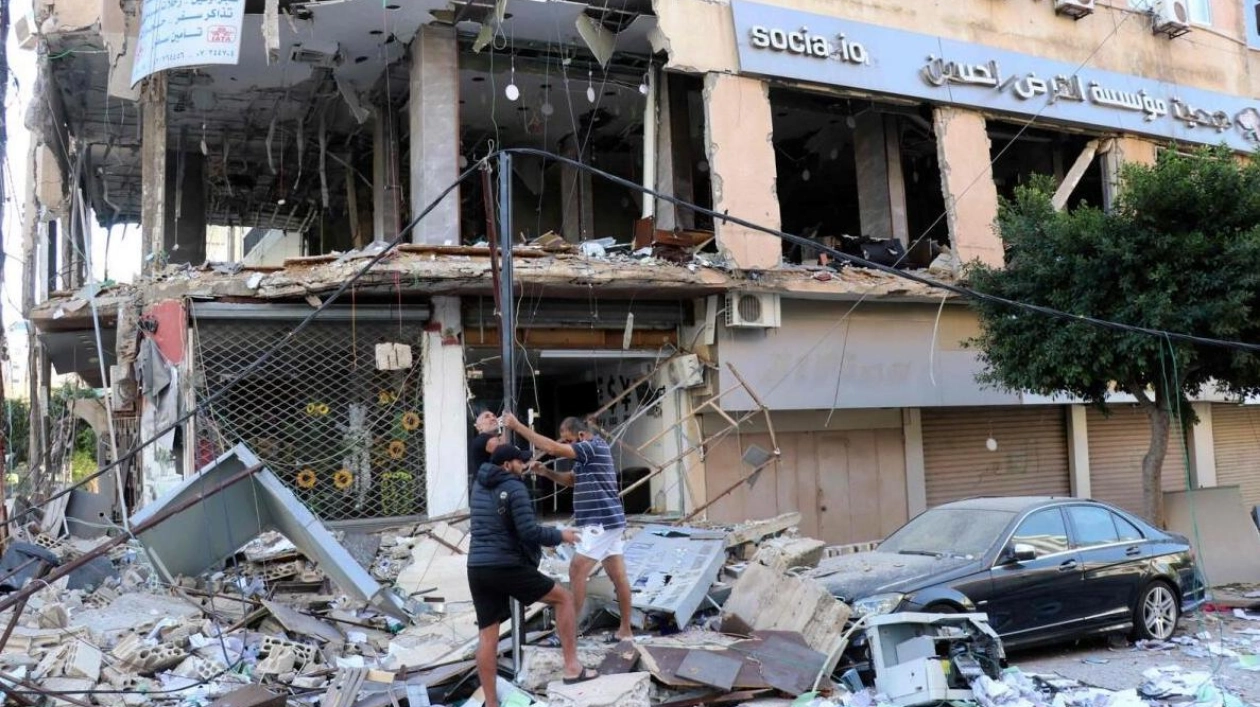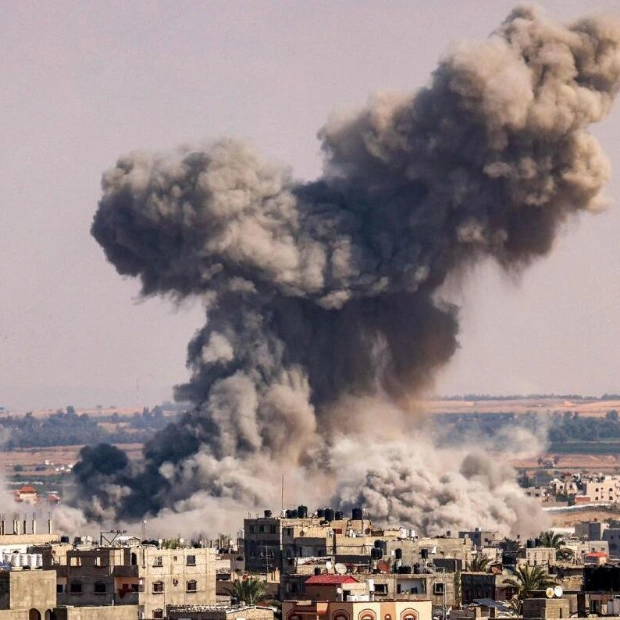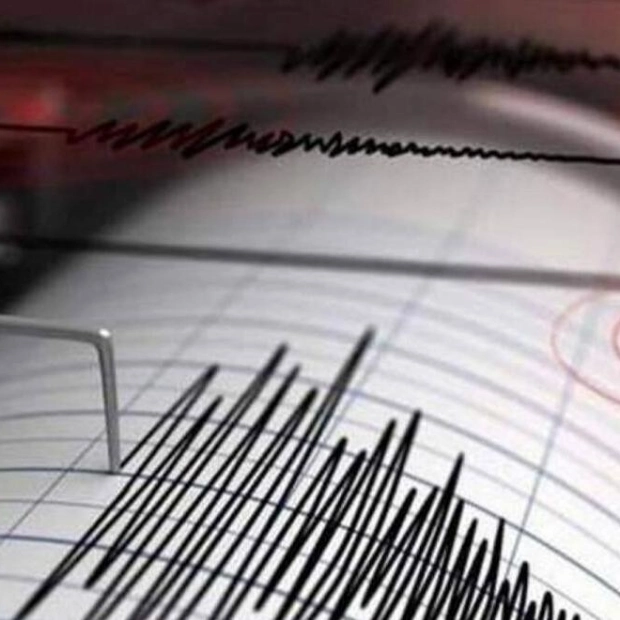People examine the destruction at the site of an Israeli airstrike that hit a branch of the Al Qard Al Hassan finance group in the southern city of Tyre on October 21, 2024. — AFP
US envoy Amos Hochstein met with Lebanese officials in Beirut on Monday to discuss conditions for a ceasefire between Israel and Hezbollah after Israel targeted branches across Lebanon of a financial institution linked to the group. Diplomacy has failed to quell Israel's escalating conflicts with its two most dangerous and heavily armed regional militia foes — Hezbollah in Lebanon and Hamas in the Palestinian Gaza Strip — which are entering their second year. Washington is hoping for a renewed push for peace in the Middle East following Israel's killing last week of Yahya Sinwar, leader of Hamas and mastermind of the attacks on Israeli towns last year that triggered Israel's assault on the Gaza Strip. US officials are working to broker a truce in Lebanon, where Israel launched a ground campaign over the past month, killing most of Hezbollah's senior leadership, an Iran-backed movement that claims to be fighting Israel on behalf of the Palestinians.
Lebanon's caretaker Prime Minister Najib Mikati stated that there is no alternative to UN Resolution 1701, but added that "new understandings" could be reached to implement it, according to a statement released by his office on Monday. A UN peacekeeping mission, mandated by Security Council Resolution 1701 adopted in 2006, is tasked with helping the Lebanese army maintain its southern border area with Israel free of weapons or armed personnel other than those of the Lebanese state. Hochstein noted that merely committing to UN resolution 1701 was insufficient, and that the United States was striving to devise a comprehensive formula to end the conflict.
The Israeli military reported on Monday that its warplanes struck short-range missile launchers in southern Lebanon aimed at northern Israeli settlements, hitting fifteen launchers. Overnight, Israel attacked sites in Beirut, southern Lebanon, and the Bekaa Valley, targeting branches of a banking system that Israel claims is operated by Hezbollah to fund its activities. Hundreds of families evacuated homes near the targeted locations ahead of the strikes, with no immediate reports of casualties.
The Israeli military stated before its overnight attacks that it was targeting the Al Qard Al Hassan Association, an alternative to the Lebanese banking system which the US has identified as being used by Hezbollah to manage its finances. The association has over 30 branches across Lebanon, including 15 in densely populated areas of central Beirut and its suburbs. There was no immediate statement from the organization, Hezbollah, or the Lebanese government.
Beirut residents, already grappling with a severe financial crisis, expressed little hope that the US official's visit would lead to a breakthrough. Israel's military has not eased its offensives and is also preparing to retaliate for an Iranian missile barrage earlier this month, though Washington has urged it not to strike Iranian energy facilities or nuclear sites. Iran has lodged a complaint with the UN nuclear watchdog over Israel's threats against its nuclear sites, according to a foreign ministry spokesperson.
The US military has expedited its advanced anti-missile system to Israel, which is now "in place", according to US Defence Secretary Lloyd Austin during a visit to Kyiv. Israel's campaign in Lebanon has displaced 1.2 million people. It claims its goal is to remove Hezbollah fighters from the border region, allowing tens of thousands of Israelis to return to homes they were forced to abandon over the past year due to Hezbollah cross-border fire in solidarity with the Palestinians. Israel has provided the United States with a document outlining its conditions for a diplomatic solution to end the war in Lebanon, according to Axios, citing two US officials and two Israeli officials.
Israel demands its forces be permitted to engage in "active enforcement" to ensure Hezbollah does not rearm near the border, and wants its air force to have unrestricted operation in Lebanese airspace, according to Axios, citing an Israeli official. A US official told Axios it was highly unlikely that Lebanon and the international community would accept Israel's conditions.
Source link: https://www.khaleejtimes.com






